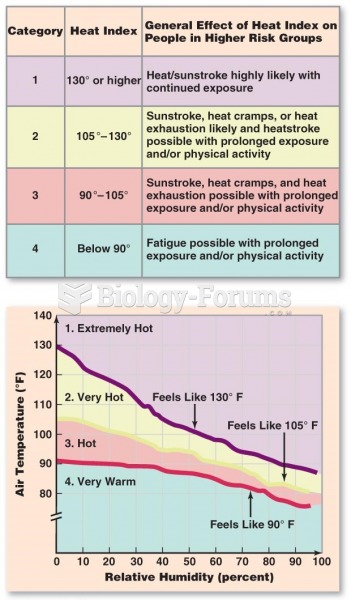This topic contains a solution. Click here to go to the answer
|
|
|
Did you know?
The average office desk has 400 times more bacteria on it than a toilet.
Did you know?
Approximately 500,000 babies are born each year in the United States to teenage mothers.
Did you know?
Women are two-thirds more likely than men to develop irritable bowel syndrome. This may be attributable to hormonal changes related to their menstrual cycles.
Did you know?
Green tea is able to stop the scent of garlic or onion from causing bad breath.
Did you know?
Prostaglandins were first isolated from human semen in Sweden in the 1930s. They were so named because the researcher thought that they came from the prostate gland. In fact, prostaglandins exist and are synthesized in almost every cell of the body.







